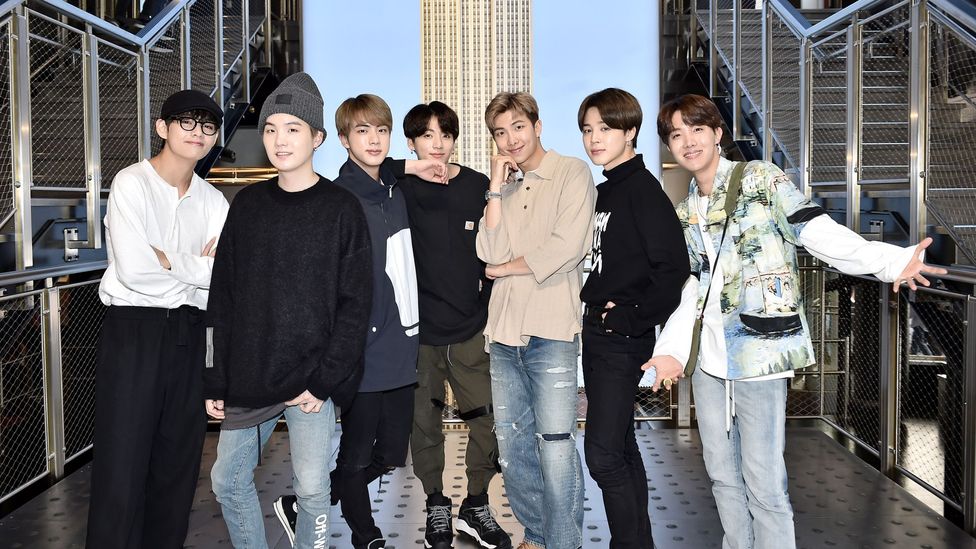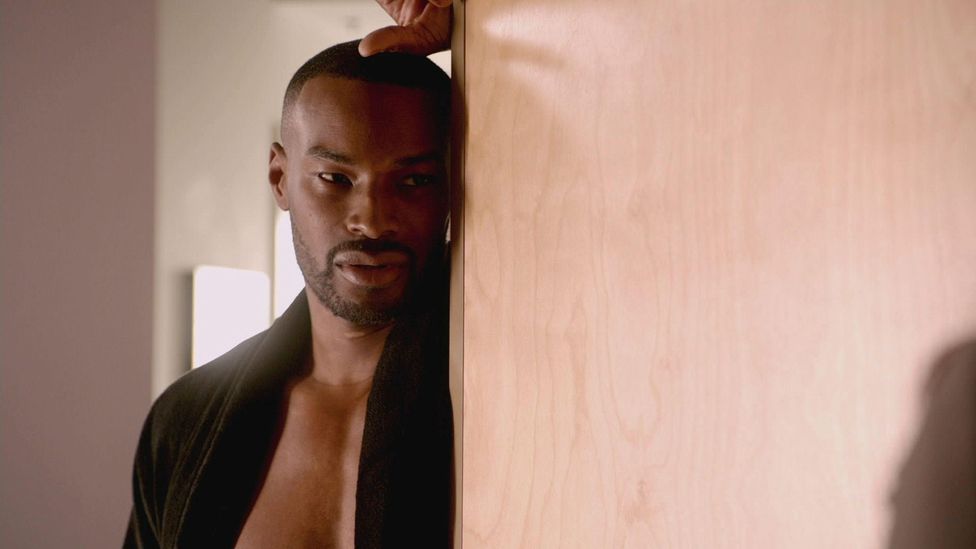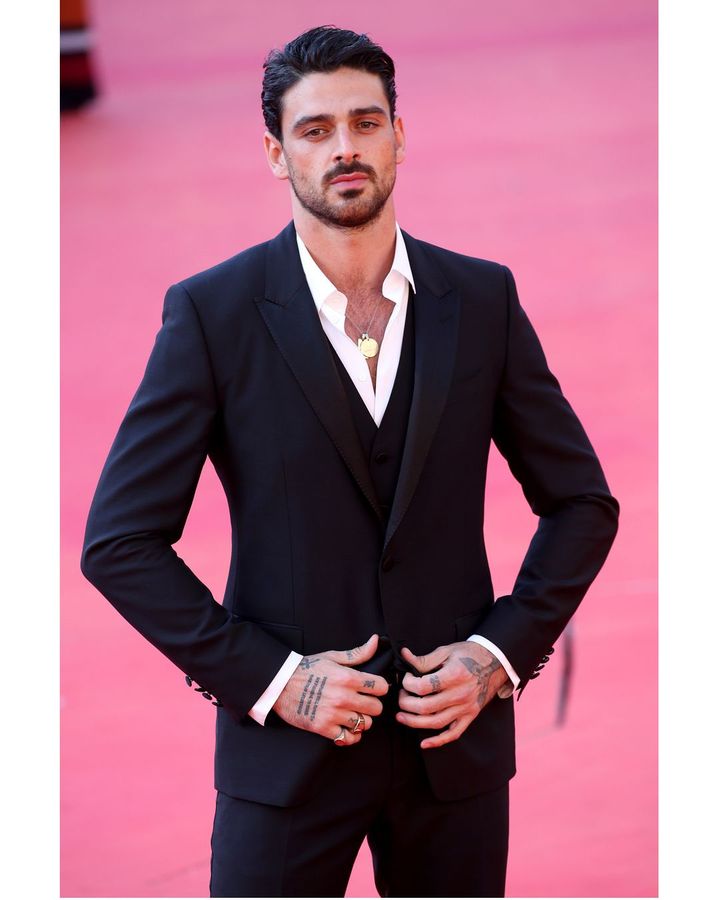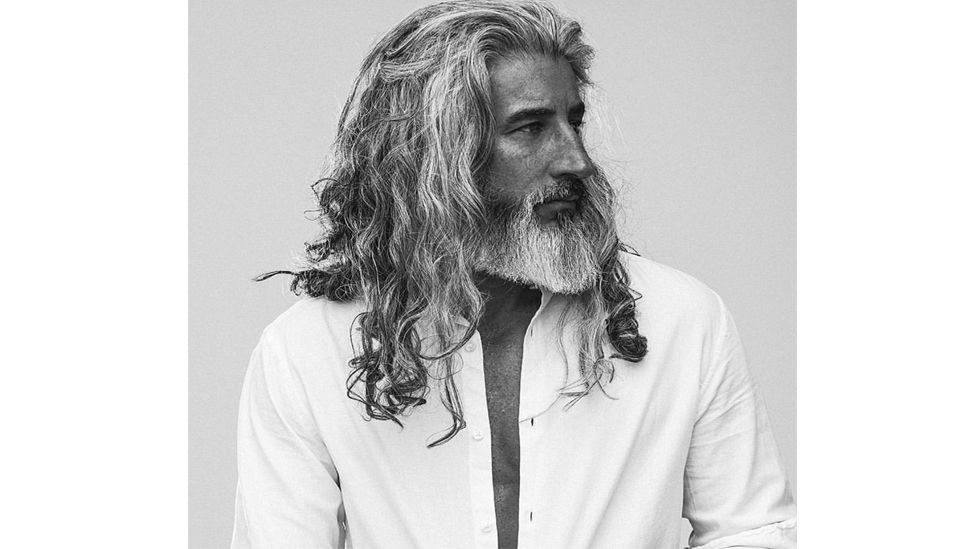
What does the 'perfect man' look like now?
- Published By Chief Editor For The Statesman Digital
- 2 years ago
From plus size to silver fox, the accepted ideal of male beauty is constantly shifting. Myra Ali explores the world of the really, really good-looking.
What makes a man handsome – or beautiful? In past decades, the most famous icons of Western male beauty have been a rather narrow cohort – blue-eyed stars of the screen like Brad Pitt or Leonardo DiCaprio come to mind. But the idea of what the "perfect" male looks like is evolving as the film and fashion worlds embrace greater diversity, and the importance of representation is understood by global brands.
All over the world, the idealised standard of the sculpted male shape has rarely reflected the average man's body. However, social-media apps like TikTok are helping to change male beauty standards by showcasing men who previously would not have had a platform. British model, body-positive activist and TikTok star Ben James is changing the way we view larger men. In 2019, as a plus-sized model, he took part in an advertising campaign for clothing brand Simply Be, appearing alongside other diverse models, and has worked with Ted Baker and Asos. James tells BBC Cuture that his work "gives comfort and confidence to boys and men alike, it tells them that they are wanted and they are worthy".
Stereotypical male aesthetics are no longer the ideal for younger people. Generation Z champion androgyny – Alexander Edmonds
While plus-sized female stars such as Lizzo and model Ashley Graham have been widely celebrated, their male equivalents have been less in the spotlight. However recently Rihanna's lingerie brand Savage Fenty has helped to normalise and give a platform to larger men. Is this a sign of a growing democratisation of male beauty? As Ben James puts it: "I'd like to see the industry improved by having different body shapes used in never-before-seen ways. Why can't we have a 'dad bod' in a fragrance campaign, or a lead role in a film? The focus needs to shift from these unnaturally-attained physiques that even the actors themselves can't sustain".

K-Pop band BTS typify a new, softer version of male beauty that is popular with Gen Z (Credit: Getty Images)
Professor of anthropology at the University of Edinburgh, Alexander Edmonds, tells BBC Culture: "Due to the legacy of slavery and colonialism [Western] images of the beautiful man have always been very white, and in the past, there were fewer barriers for this to change but this may be happening now". Black supermodels like Tyson Beckford and Alton Mason regularly grace the covers of GQ and other magazines, and the fashion world is gradually becoming more diverse, perhaps in part because global social changes such as the Black Lives Matter movement have made brands recognise the need for diversity.
"Stereotypical male aesthetics and behaviours are changing," says Edmonds. "They're no longer the ideal for younger people, Generation Z champion androgyny. This is happening a lot in East Asia, especially in South Korean pop culture". In South Korea, the ideal has become more feminine, with the rise of K-Pop bands such as BTS, known for their vibrant hair and make-up. This type of beauty would be deemed unorthodox by traditional Western standards – but is now widely sought after and highly influential in mainstream media.

The US supermodel Tyson Beckford was the face of Ralph Lauren (Credit: Alamy)
And as with every ethnicity, East Asian beauty standards are also diverse. US-Korean model Dae Na says: "When I first started there was a handful of Asian models but now you see multiples. Exponentially, it just kind of grew as the industry geared more towards Asian buyers or [the] Asian market". With a large population of high-net-worth individuals in Asia, brands want to make models like Dae the face of their campaigns, to create a connection with consumers.
Super duper
And male supermodels are, it seems, gradually catching up with their female counterparts' success and earning power in recent years. US model Tyson Beckford was recruited by Ralph Lauren to be the face of the brand, and has since become the most famous black male supermodel of all time. Model Sean O'Pry, meanwhile, has carved out a career lasting more than 15 years, making him among the richest male supermodels in the world. Originally from a small town in Georgia, US, he arrived in New York at the age of 17 with only $150 in his pocket – and went on to secure exclusive contracts from big brands.
O'Pry became known on the world stage when he was chosen by Taylor Swift to play the role of her love interest for her 2014 Blank Space video. "It's the best-known moment of my career," O'Pry tells BBC Culture. "My career took a different road after that. It opened more doors for me. I'm very thankful, as I was able to be a part of that." Having adorned numerous magazine covers over the years, he has maintained a high profile. How has he achieved that? "You have to maintain humility in the industry. I'm going up against people that are all in a casting – dark hair, blue eyes. I'm going up against guys that look exactly like me and you have to be able to separate yourself. That’s a part of who you are on set and how you act and present yourself. I didn't try and make my face to look a certain way. This job kind of fell in my lap."

Actor Michele Morrone played a smouldering Mafia boss in the film 365 Days (Credit: Getty Images)
And the conventional notion of the Mediterranean "tall, dark and handsome" type is still in demand, despite growing diversity. The phrase came to use in Europe in the early 1900s, and then was commonly used in Hollywood during the 1920s to describe Italian star Rudolph Valentino. It has remained a frequently used idiom, although the exact meaning and inference of "tall, dark and handsome" is now more closely scrutinised and debated. Anthropologist Shafee Hassan tells BBC Culture: "Mediterranean men have a huge advantage in having dark eyebrows and dark facial hair. You can grow a full beard… dark hair is associated with virility". Beautiful by these standards is Italian actor Michele Morrone. From Puglia, Southern Italy, he was working until last year as a gardener in Rome and auditioning for acting roles. His life changed overnight when he was cast as the lead in Netflix film 365 Days, which became one of the most-watched films on the platform of 2020. He plays the smouldering Mafia boss Massimo, a figure of fantasy for his many fans.
Morrone tells BBC Culture: "I can't deny my looks helped me in getting the role, because I fit the exact characteristics of Massimo; he's tall with brown hair. But if they chose another actor, would it be the same? You can have the look but if you don't know how to dance… " According to Morrone, he initially found it hard to get acting work because of his looks. "It's very difficult for a good-looking guy to get work as a serious actor because people think to be an actor you should not be this good looking. I don't know why they have this concept. I had a casting every week for 10 years, I did not get the roles."

Ron Jack Foley is among the many older male models who are increasingly visible in fashion and on social media (Credit: Twitter/ @RJackFoley)
Yet despite the continuing success of the traditionally handsome, the norm of the male beauty standard is opening up. Older models have seen a significant rise in popularity. Of course, we're used to conventionally handsome "silver foxes" such as Pierce Brosnan and George Clooney gracing our screens, but now older male models are frequently used in advertising campaigns and on runways, among them Anthony Varrecchia, Wang Deshun (who became known as "China's hottest grandpa"), Ron Jack Foley and Lono Brazil. The 87-year-old model René Glémarec appeared, along with his 86-year-old wife Marie-Louise, at Paris fashion week dressed in gender-neutral clothes made by his grandson Florentin Glémarec.
The male model Orlando Hobechi recently told the Guardian: "About four years ago I noticed an increase in the use of older models. Suddenly there was interest in older people's stories." Longer lifespans have made the difference, according to Hobechi. "Age isn't the turn-off it used to be. Over the last 30 years, we've seen cool young people age – you can be older now and still cool and relevant… People want to see people who look like themselves represented."
Share on
SHARE YOUR COMMENT
MORE STORIES FOR YOU
Trending Stories
DJ Mo’s former illicit lo...
- Published By Jane
- January 15, 2024
Mapenzi! Zari and Tanasha...
- Published By Jane
- October 24, 2023
Zuchu Speaks on Diamond P...
- Published By Jane
- October 12, 2023
Hio Ni Upumbavu Wasituche...
- Published By Jane
- November 8, 2023
RECOMMENDED FOR YOU
Your Lungs Hold Secrets A...
- Published By The
- September 11, 2025
Better Sleep?: See The Li...
- Published By The
- September 11, 2025
What to Know About iPhone...
- Published By The
- September 11, 2025
From Teacher to Mwalimu N...
- Published By The
- September 11, 2025
Latest Stories
From Last-Gasp Winners to...
- Published By The
- October 6, 2025
Ten Games and Three Goals...
- Published By The
- October 6, 2025
French Prime Minister Séb...
- Published By The
- October 6, 2025
"Shame on Him": Cera Iman...
- Published By The
- October 6, 2025



